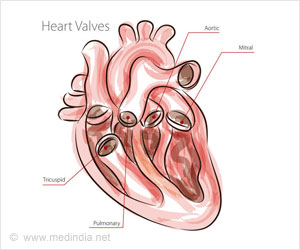Elevated systolic blood pressure over a lifetime is a risk factor for major valvular heart disease. BP-lowering treatment can help prevent valvular heart disease.

‘Elevated systolic blood pressure is associated with the incidence of valvular heart disease. Elevated systolic blood pressure is a modifiable risk factor and hence valvular heart disease can be prevented.’
Read More..




This study confirms the fact that lifetime exposure to elevated systolic blood pressure with 20mm hg increments increases the chances of major valvular heart disease. Read More..
Previous cross-sectional studies showed a link between systolic BP and risk of aortic stenosis and aortic regurgitation. After this confirmation, large-scale cohort studies showed an association between BP and increased risk for aortic stenosis, aortic regurgitation, and mitral regurgitation.
Patients with heart valve disease show symptoms such as irregular heartbeat, shortness of breath, fatigue, fainting, and dizziness. The earlier the treatment for high blood pressure, the lesser the time these individuals are exposed to the condition.
In this study, Mendelian randomization estimates for the associations between systolic BP and VHD. Mendelian randomization uses the naturally occurring randomized exposure to genetic variants which are linked to lifetime systolic blood pressure. Such randomization overcomes the problems of reverse causation and confounding typical of nonrandomized studies.
It was concluded in the study that lifetime exposure to elevated systolic blood pressure may be associated with high risks of major valvular heart disease. Since a Mendelian randomization study was used there were less chances of confounding and reverse causation. Thus it can be suggested that BP-lowering treatment prevents valvular heart disease.
Advertisement
Source-Medindia















